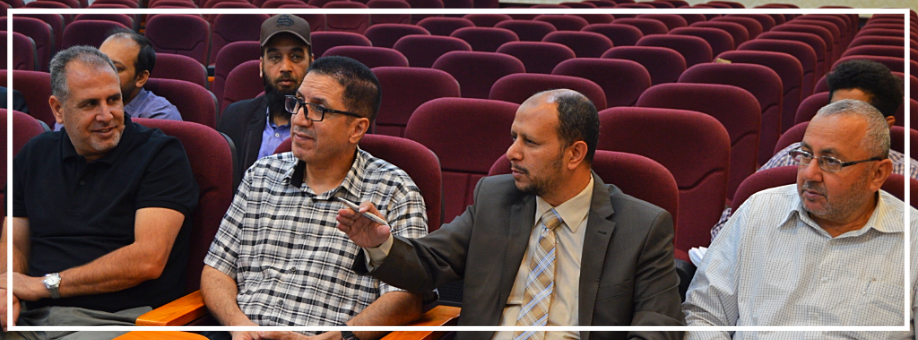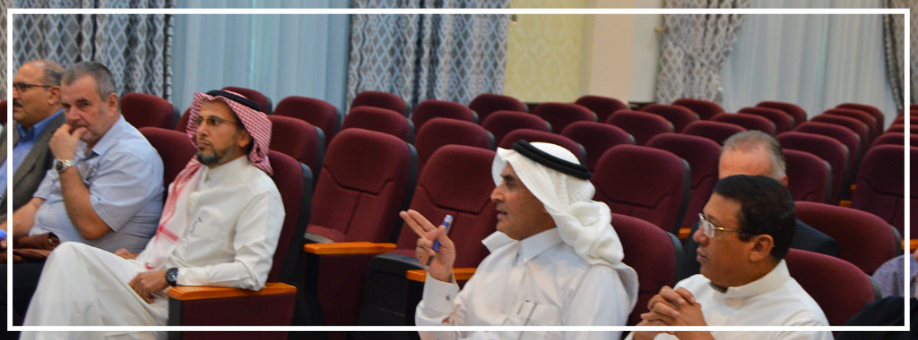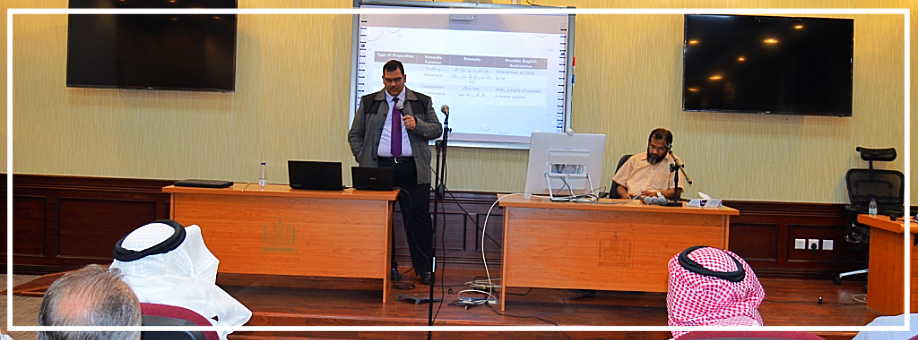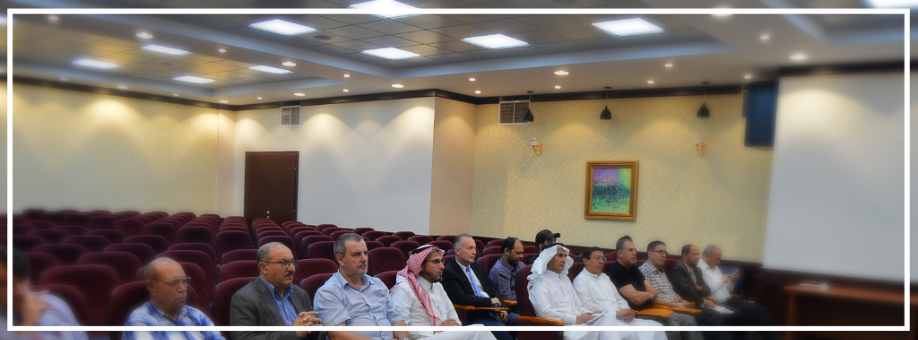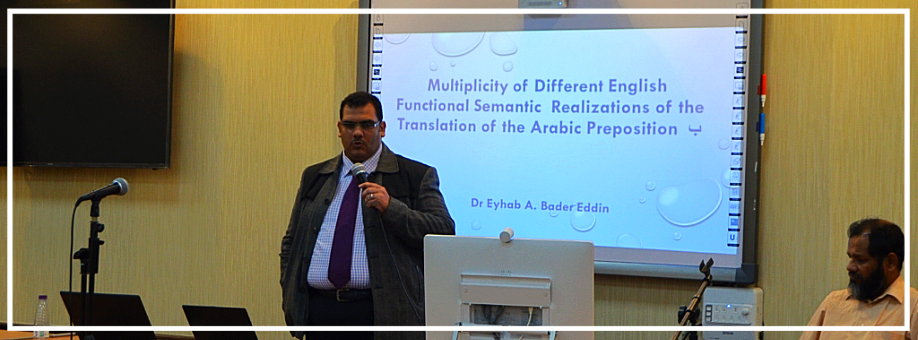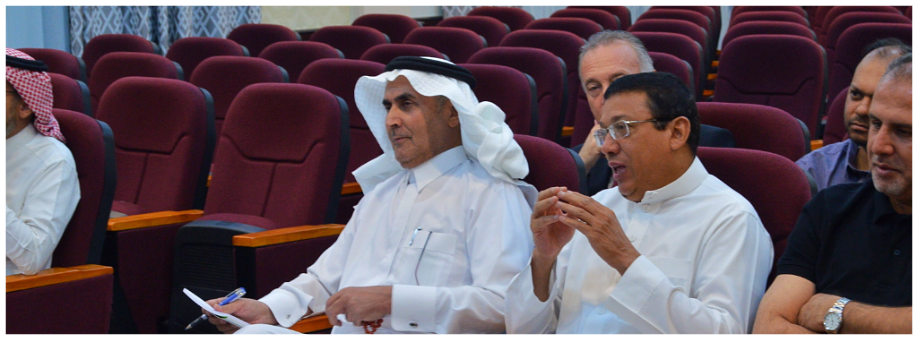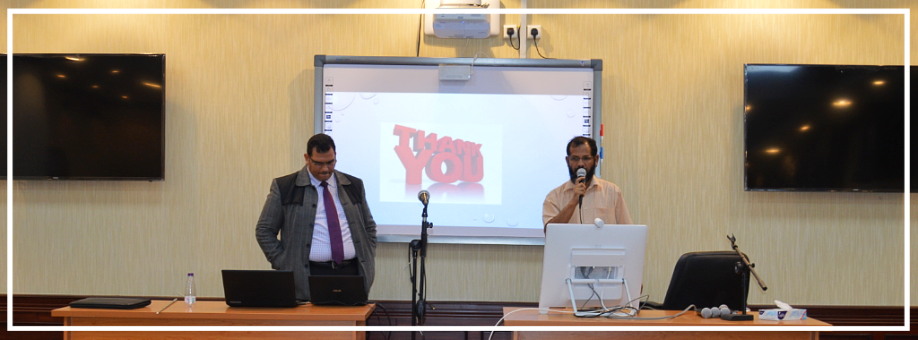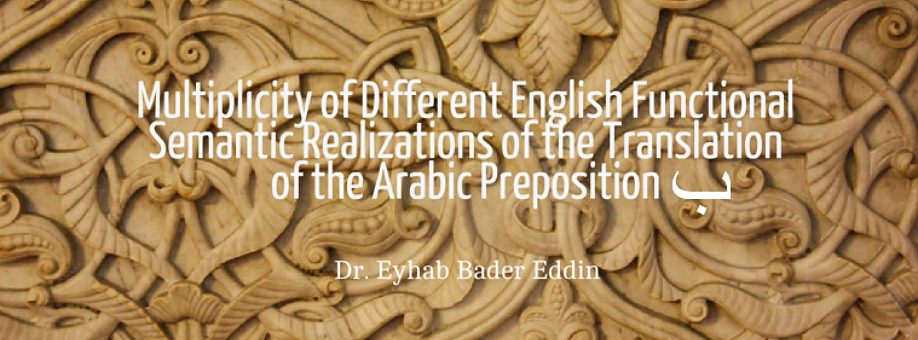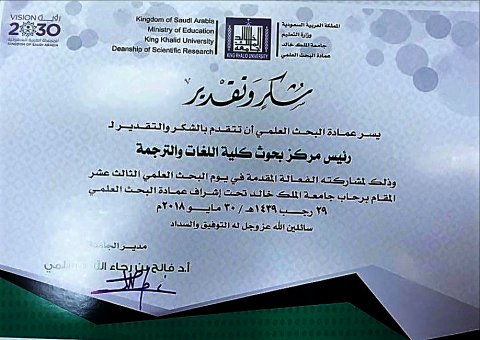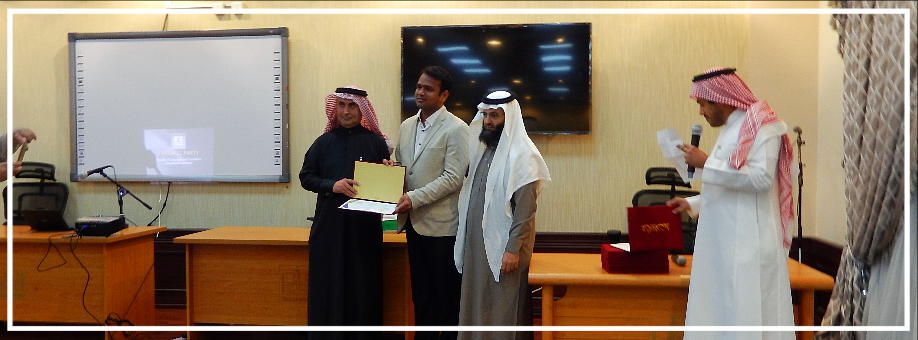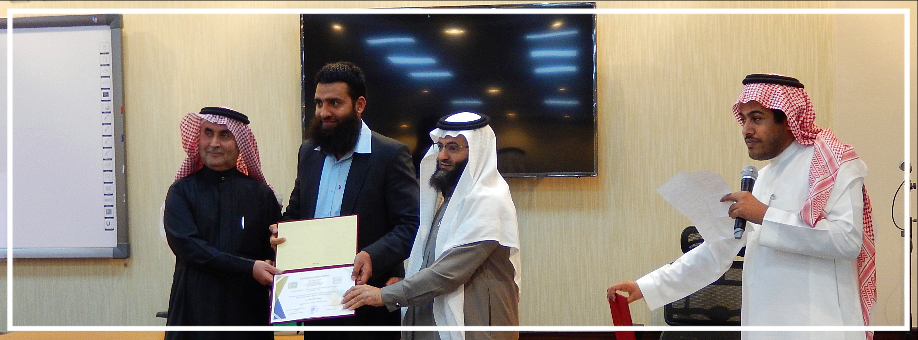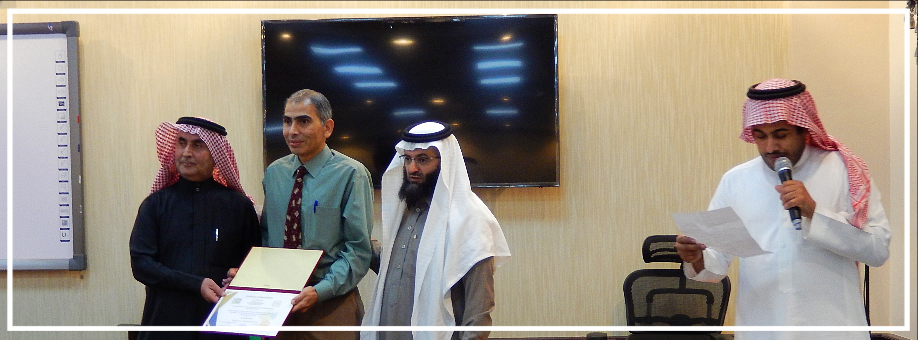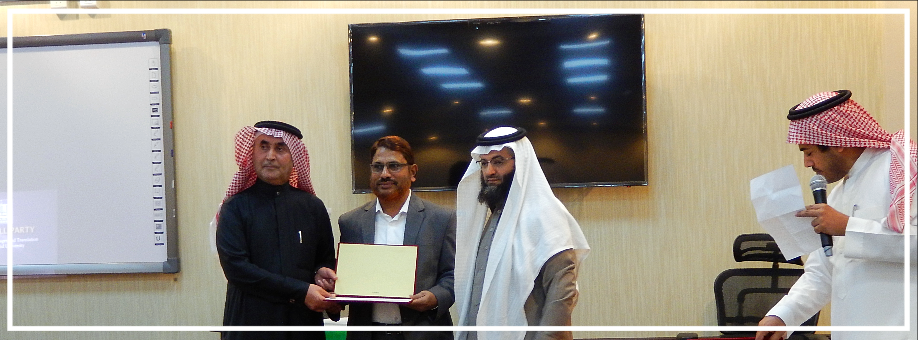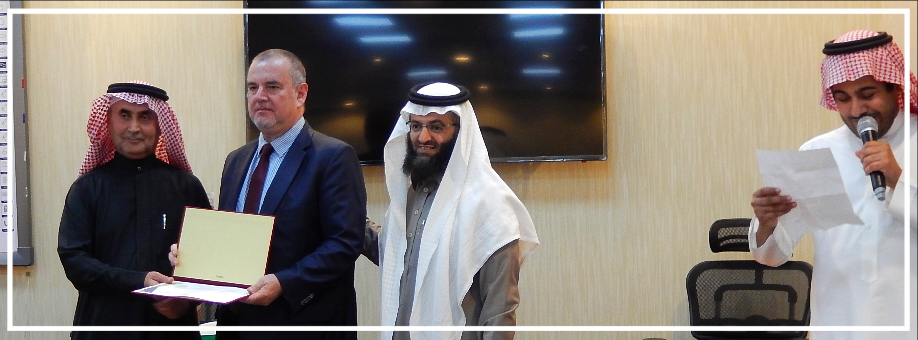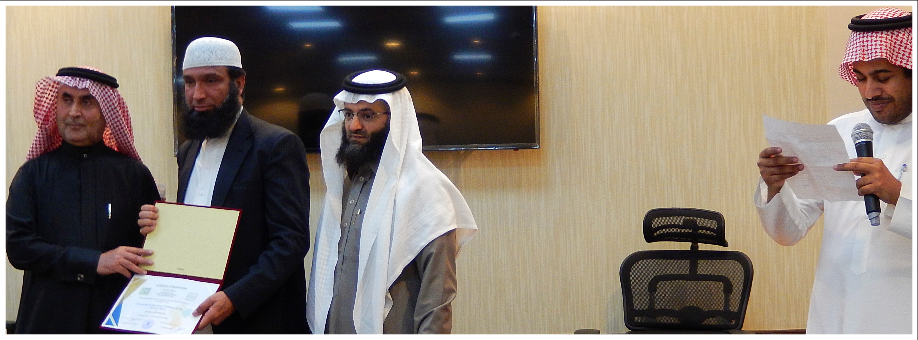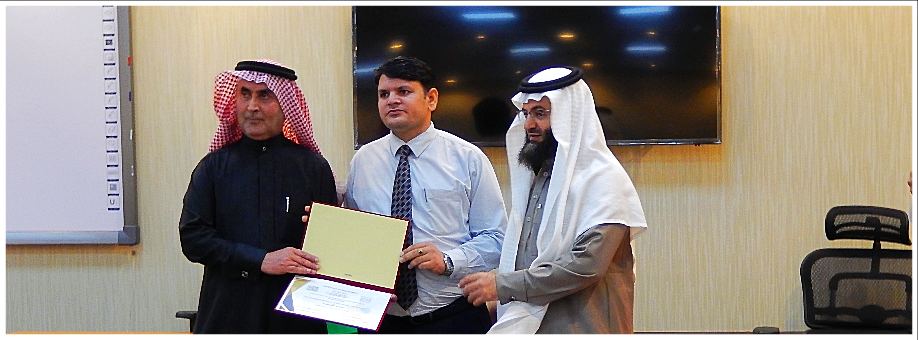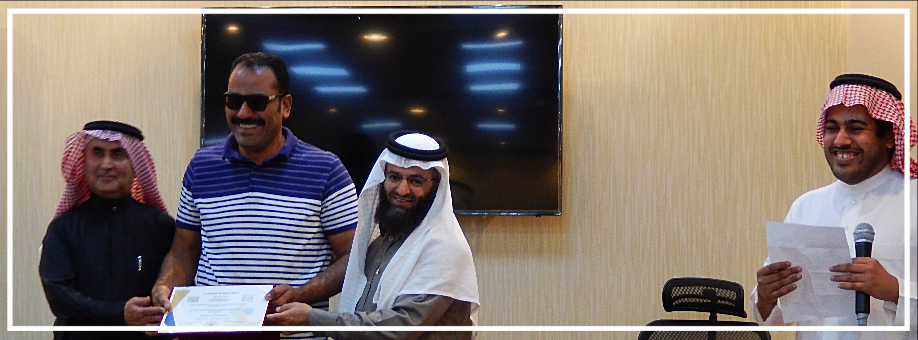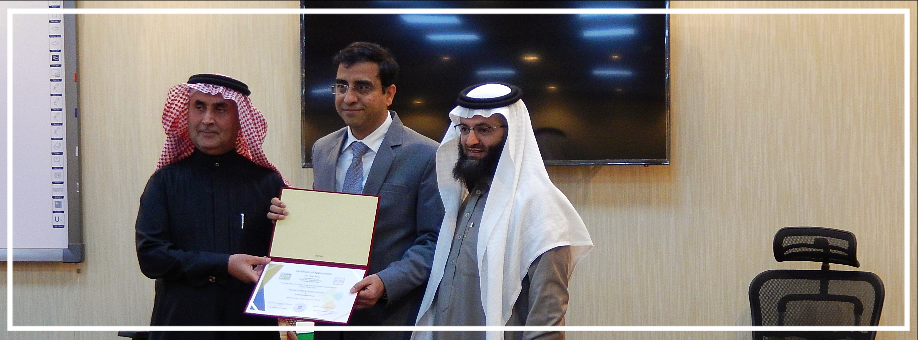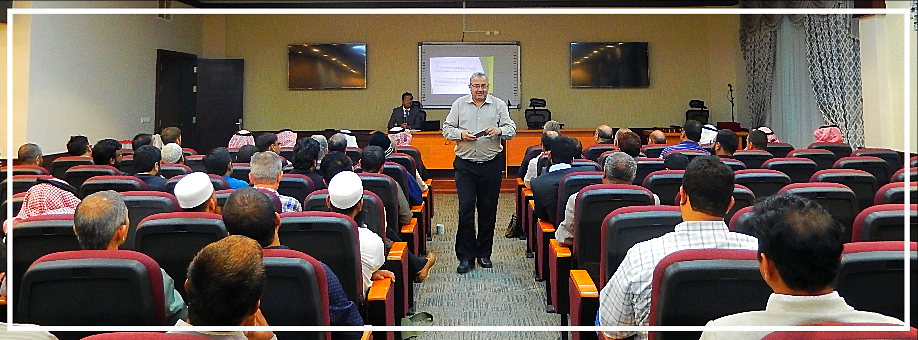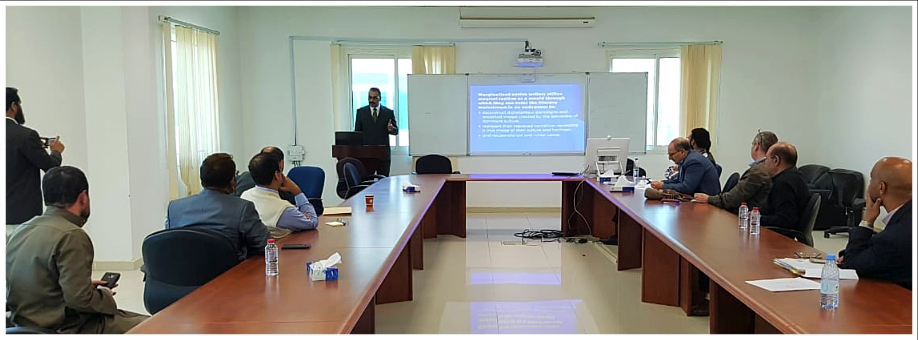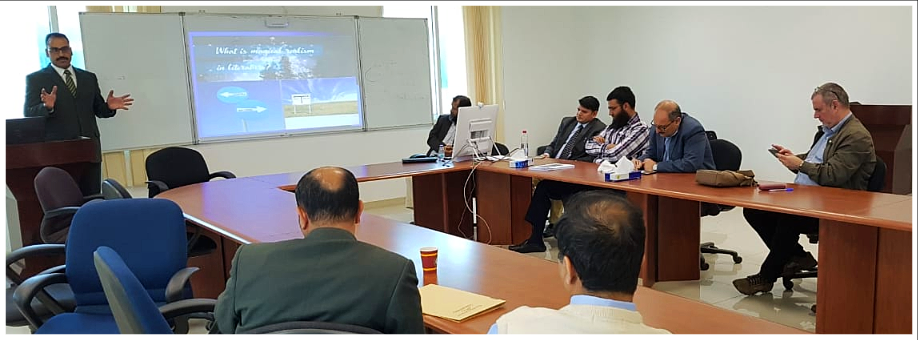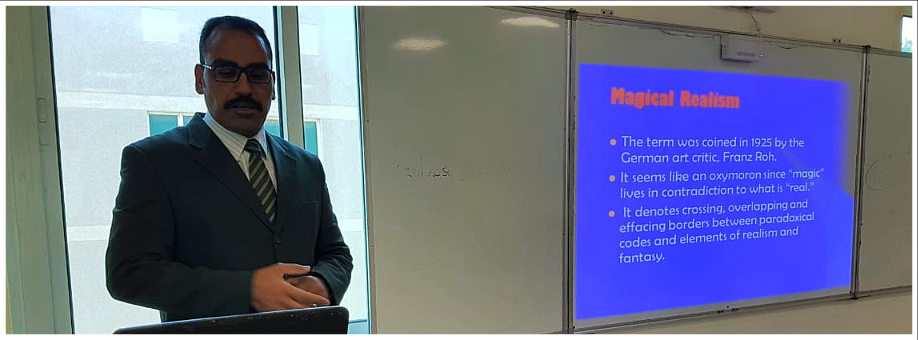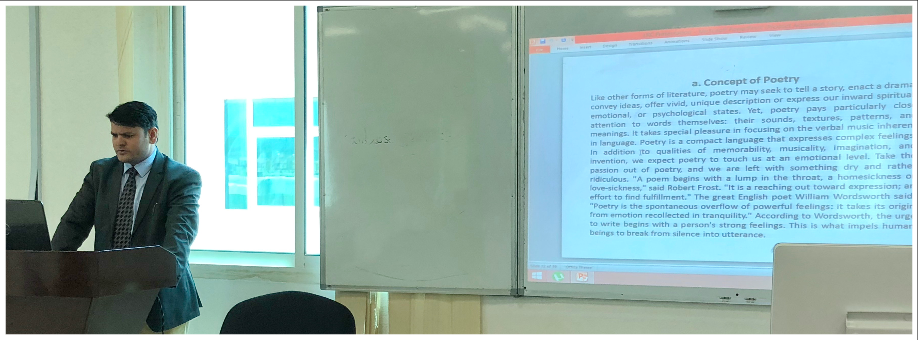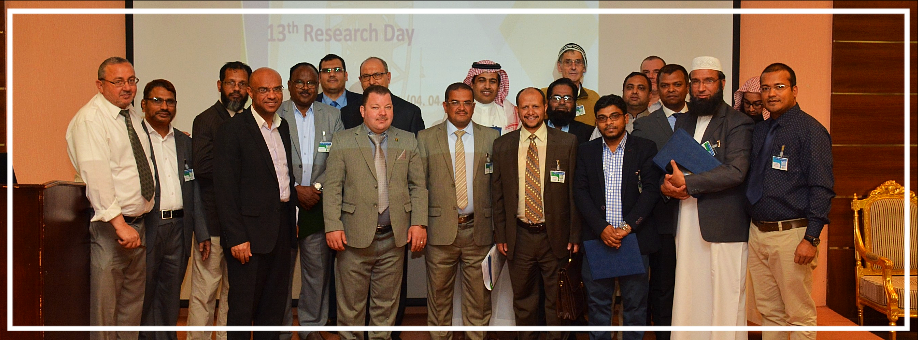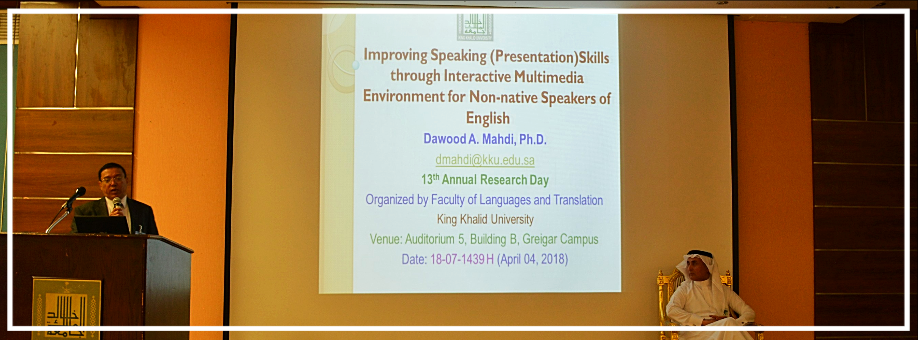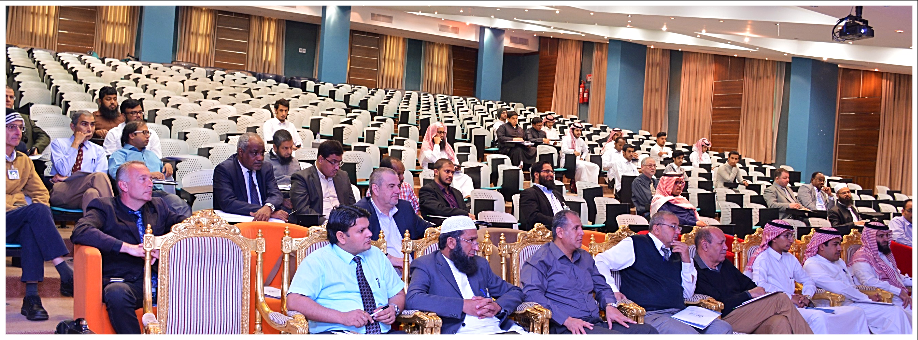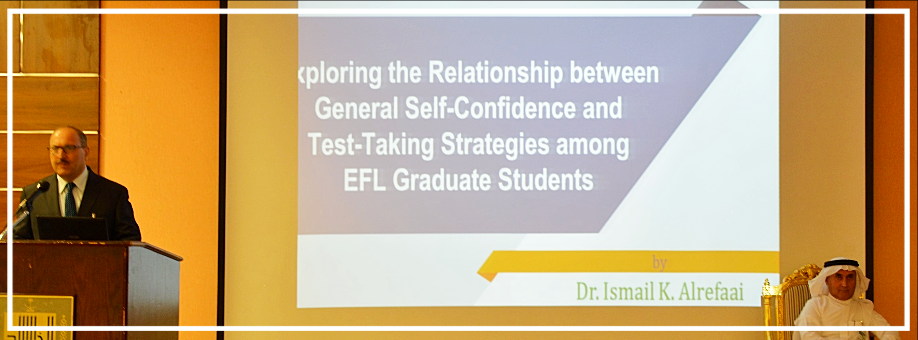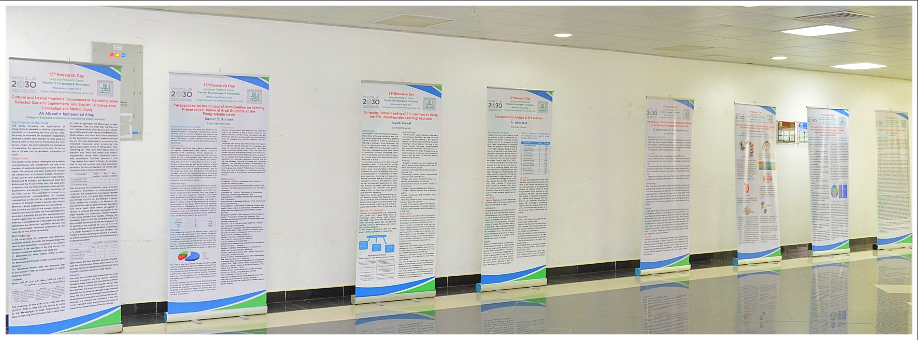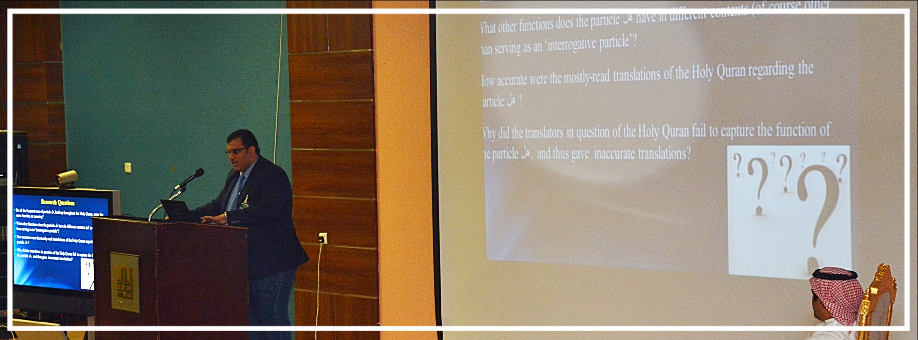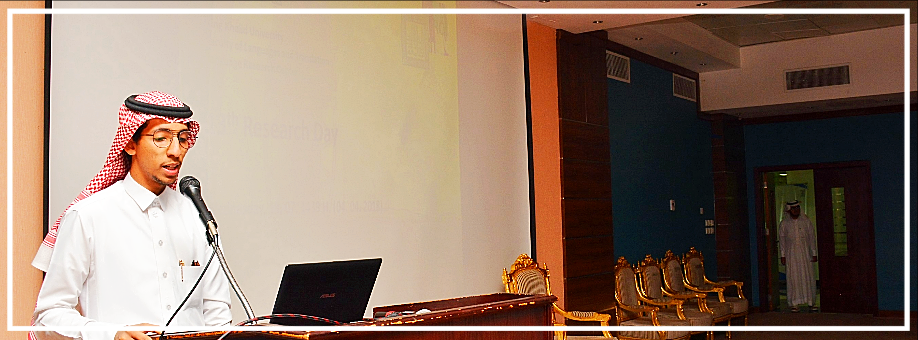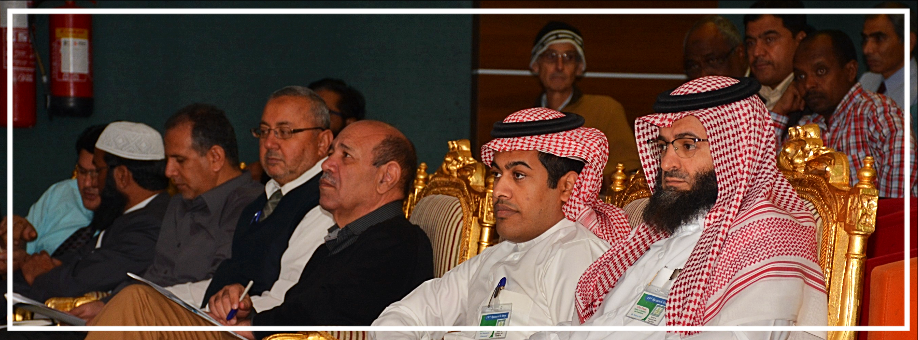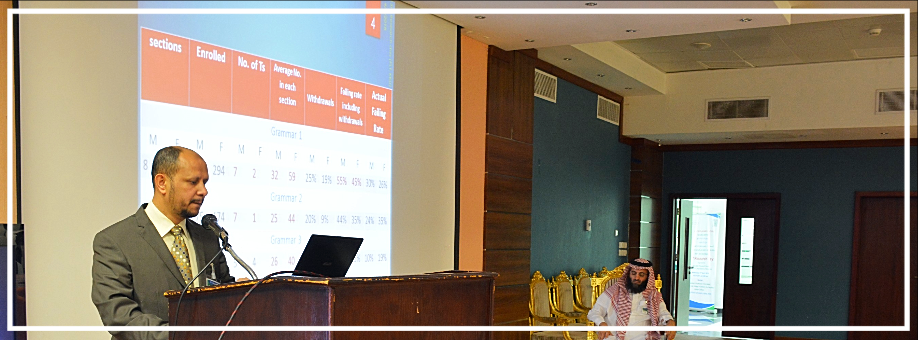Multiplicity of Different English Functional Semantic Realizations of the Translation of the Arabic Preposition ب
Dr. Eyhab Bader Eddin delivered a presentation titled 'Multiplicity of Different English Functional Semantic Realizations of the Translation of the Arabic Preposition ب' at a seminar organized by the Language Research Center of King Khalid University held on October 10, 2018. His presentation was about his research on a particular Arabic preposition, namely ب and its diversity of meaning when translated into English.
The seminar, originally a published paper in a refereed specialized journal, throws a spotlight at an uncharted territory in the field of translation and grammatical analysis, taking the fact that the semantic functions of the preposition ب in Arabic have been the cynosure of all linguists’ and translators’ eyes for decades as the point of departure. The different realizations in English of the same preposition in Arabic are meant to enrich translators’ and linguists’ appreciation and critical understanding of the different semantic functions of the preposition ب. Failure to correctly understand the semantic functions inherent in the preposition ب in different contexts definitely washes away meaning, and causes translators to bog down in unanswered questions pertaining to the exact meaning intended.
Dr. Bader Eddin first compared Arabic parts of speech with English ones. The English word class of ‘nouns’ covers in Arabic the word classes of nouns, pronouns, adjectives and adverbs, he exemplified. Particles in Arabic, referred to as حروف, can be further divided into two types of particles, namely حروف مبنى (alphabetical letters) and حروف معنى (prepositions), he added. He went further to say that the tri-classification of Arabic parts of speech does not mean that English has more parts of speech than Arabic does. It is noticed that the semantic behavior, expressed by بـ in Arabic is richer than that in English, and thus cannot always be transferred through a one-to-one correspondence into English. The seemingly same ب in Arabic can be said to be an overloaded preposition in Arabic that no one particular preposition can be predicted in English. This linguistic phenomenon is context-bound in that the same preposition ب behaves semantically different, and thus cannot be dealt with according to watertight criteria predictably. In Arabic, particles are divided into ‘effective or operative’ and ‘passive’ عامل وعاطل. By the former, we mean that their occurrence before the noun it accompanies brings about what is grammatically known as ‘declension’ الإعراب. This means the last morpheme or inflection of the word carries a marker (diacritic mark) showing its grammatical case and category. Such particles, depending on what particles are used, may make the word they precede in the nominative, accusative, dative or apocope case, that is حالة الرفع أو النصب أو الجر أو الجزم respectively. Prepositions are considered one type of ‘effective or operative particles’ as they transform the noun following them into the dative case.
Dr. Bader Eddin also explained in detail the various types of Arabic preposition ب their semantic functions and possible English realization. He particularly adduced evidence from the Holy Qur'an for this research out of the firm belief that the Holy Qur'an is the model of linguistic excellence whose style is described as ‘sui generis’. He highlighted the fact that one preposition in Arabic can be realized differently in English. His research, he believed, would enrich translators’ and linguists’ critical understanding of different semantic functions of the preposition. Some of the semantic functions carried by the preposition ب are ‘physical contact, instrument, transitivity, causal, substitution, oath administering, etc. A volley of questions were posed at the end, and answers were provided. You may have a look at the PowerPoint presentation by clicking here.
It is worth mentioning that the King Abdullah Road campus attended the seminar online.
The seminar was very informative and overall successful.
Date: 10/10/2018
Source: Mohammad Adil Siddique
Multimedia Source: Mohammed Jabir

